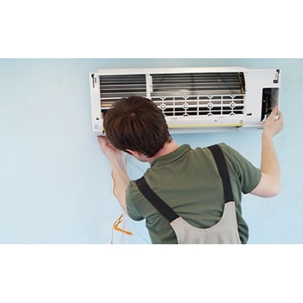Types of AC Systems
Central Air Conditioners
Central air systems are ideal for cooling large homes. They offer consistent temperature control and are energy-efficient when paired with a programmable thermostat.
Split AC Systems
Split AC units are perfect for specific zones in your home. They’re easy to install and provide targeted cooling without ductwork.
Window Units
Compact and affordable, window ACs are best for small spaces. These units are portable and energy-efficient but may not cool larger areas effectively.
Portable Systems
Portable air conditioners offer flexibility and are easy to set up. They’re a great choice for renters or those needing a temporary cooling solution.
Choosing the Right AC System
When selecting an AC system, consider the size of your space, energy efficiency ratings, and budget constraints. Consulting a professional can help you make an informed decision that matches your needs and preferences.
Cost of AC Installation in Tampa
Factors Affecting Installation Costs
The cost of AC installation in Tampa depends on factors such as the unit type, labor charges, and any additional modifications required for your home.
Average Price Range
Installation costs range depending on your work.
Preparing for AC Installation
Ensure a smooth installation process by conducting a pre-installation checklist. Clear the area, verify electrical compatibility, and make necessary structural adjustments to accommodate your new system.
Step-by-Step AC Installation Process
- Inspection: Professionals assess your home’s layout and determine the optimal system.
- Placement: Proper positioning ensures efficient airflow and minimal noise.
- Wiring and Connections: Technicians handle electrical connections and refrigerant lines.
- Testing: The system undergoes thorough testing to confirm functionality.
Common Issues During Installation
Challenges such as space constraints, outdated electrical systems, or incorrect unit placement can arise. Addressing these early ensures a successful installation.
Benefits of Professional AC Installation
Hiring experts guarantees safe installation, adherence to manufacturer warranties, and optimized system performance.
AC Maintenance Basics
Regular maintenance extends the lifespan of your AC system and enhances its efficiency. Key tasks include cleaning filters, checking refrigerant levels, and inspecting electrical components.
Signs Your AC Needs Maintenance
- Decreased Cooling: If your AC struggles to maintain set temperatures, it may need servicing.
- Unusual Noises: Grinding or rattling sounds often indicate mechanical issues.
- Higher Energy Bills: A sudden spike in energy consumption signals inefficiency.
DIY AC Maintenance Tips
- Clean Filters Regularly: Dirty filters restrict airflow and reduce cooling efficiency.
- Inspect Thermostat Settings: Ensure accurate calibration to prevent overworking your system.
- Monitor Refrigerant Levels: Low refrigerant affects cooling capacity and can damage your unit.
When to Call a Professional
For major repairs, electrical issues, or refrigerant leaks, always consult a licensed technician. Attempting complex repairs yourself can void warranties and worsen the problem.
Finding Reliable AC Services in Tampa
Look for certified, experienced professionals with positive customer reviews. Reliable providers often offer warranties and emergency repair services.
Energy-Efficient AC Practices
- Smart Thermostats: Optimize cooling schedules to save energy.
- Improved Insulation: Seal gaps to prevent cool air from escaping.
- Routine Inspections: Regular checks identify issues before they escalate.
FAQs
1. How often should I service my AC system?
Service your AC at least once a year, ideally before summer.
2. What is the average lifespan of an AC unit?
Most AC systems last 10-15 years with proper maintenance.
3. How do I improve my AC’s efficiency?
Regular maintenance, using a programmable thermostat, and ensuring proper insulation enhance efficiency.
4. Can I install an AC system myself?
Professional AC installation is recommended to ensure safety, efficiency, and warranty coverage.
5. Why is my AC making strange noises?
Unusual sounds often indicate loose parts, motor issues, or debris in the unit.
6. What is SEER, and why does it matter?
SEER (Seasonal Energy Efficiency Ratio) measures cooling efficiency. Higher SEER ratings mean better energy savings.
Conclusion
Investing in the right AC system and maintaining it diligently ensures comfort and cost savings in Tampa’s challenging climate. By choosing professional services and adopting energy-efficient practices, you’ll enjoy optimal performance and peace of mind for years to come.

